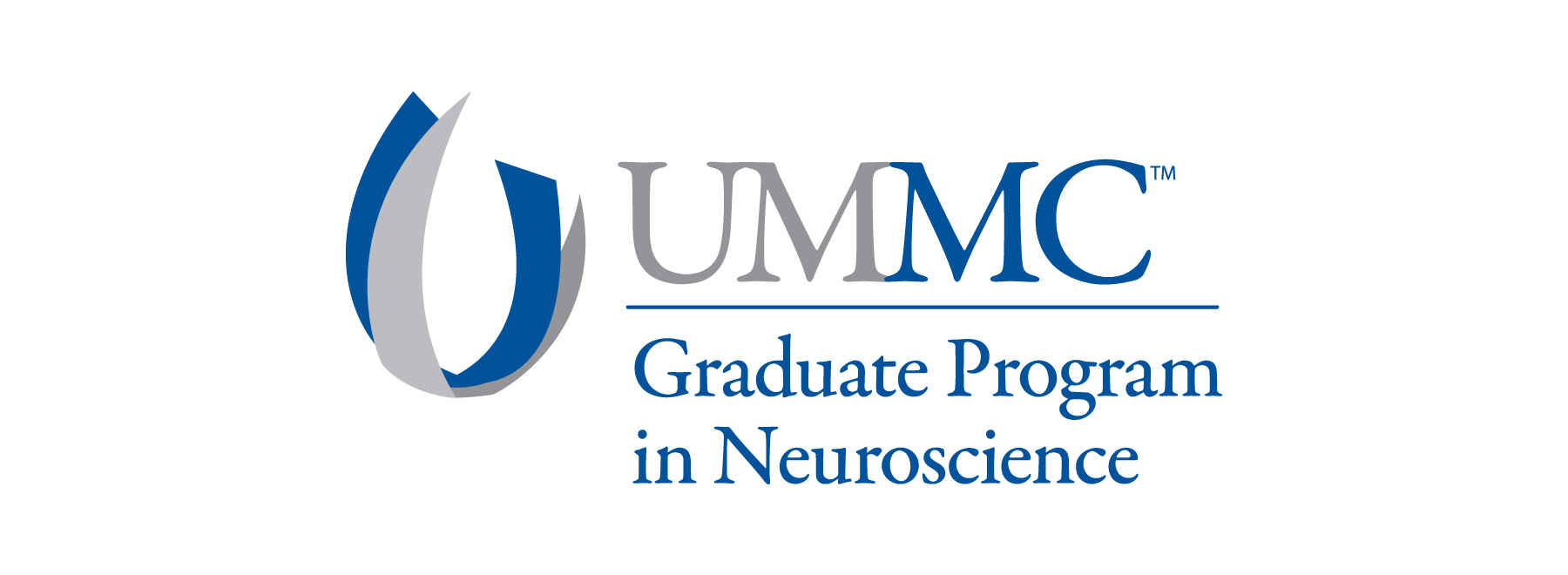
Handbook
Advisory Committee
All students must form a Dissertation Advisory Committee (sometimes also referred to as a thesis advisory committee) within six weeks of passing the Qualifying Exam, i.e., the start of Candidacy. Members of the advisory committee will have the appropriate expertise to help students successfully navigate their dissertation research projects, provide professional development advice, and should be viewed as a valuable resource. Members can be consulted both informally and during the formal advisory committee meetings.
COMPOSITION OF THE ADVISORY COMMITTEE
The committee consists of at least five faculty. These include the research mentor (Chair of the Advisory Committee), at least 3 faculty members of the Graduate Program in Neuroscience, and 1 (or more) graduate faculty from outside the Graduate Program in Neuroscience but within the SGSHS. Additional members of the committee drawn from outside UMMC are encouraged, but not required.
Committee members are selected together by the student and the mentor, subject to approval by the Program Director, who may seek further input from the Associate Director. Students and research mentors will submit the names and short descriptions of the expertise of the proposed advisory committee member relevant to the dissertation research to the Program for approval. Upon Program approval and obtaining the PIN Director's signature, the form will be sent to the Graduate School for final approval. If a proposed member is from outside of the SGSHS, a CV must be submitted with the proposal and the form.
Executive Committee Representative: In addition to the above-mentioned members, a member of the Executive Committee of the Graduate Program in Neuroscience is required to serve on the Advisory Committee and may be assigned by the Program Director. In addition to providing research and professional development advice, this member will help ensure that the Program's administrative processes are correctly followed, that timelines are adhered to, and will oversee the overall quality of the dissertation in relation to the Program's standards and requirements. The PIN EC representative will also be able to report to the Executive Committee on the student's progress. In the case of a mentor also sitting on the Executive Committee, the mentor may not serve as the Executive Committee representative on their student's advisory committee.
ADVISORY COMMITTEE MEETINGS
Advisory Committee meetings take place at least once every 6 months for PhD students and every 4 months for MD/PhD students, given their expedited time frame. The first meeting takes place before the end of the fall term of the third year for PhD students and before the end of the fall term for the first year for MD/PhD students. These initial meetings also serve for Dissertation Proposal Approval. Dates of the meetings must be recorded in the Student Progress form. Research Proposal or Progress Reports should be provided to the Advisory Committee members 5 business days prior to the scheduled meeting to allow for time to read the updates/progress.
RESPONSIBILITIES OF ADVISORY COMMITTEE MEMBERS
Research Mentor's Responsibility: The mentor is responsible for making initial contact with potential advisory committee members to ask if they are willing to serve on the student's committee. Normally, this will be done shortly after the student has passed the Qualifying Exam, but changes in the advisory committee composition may occur at different times during progress towards the degree. Research mentors are also responsible for helping to ensure that advisory meetings occur on time.
Student's Responsibility: The student is responsible for scheduling the advisory committee meetings and ensuring they are completed on time as per Program and SGSHS guidelines. Students are also responsible for distributing the Research Proposal and Progress Reports to the committee members and the Program in time for the meetings.
Program in Neuroscience Executive Committee (EC) Representative Responsibility: An EC representative assigned to an advisory committee will act both as Program representative and scientific advisor if expertise is appropriate. At their discretion, an EC member can call for additional committee meetings should they believe more frequent and additional meetings are warranted. The EC member reports student progress during the monthly EC meetings. Finally, the EC member can answer any questions regarding the research proposal or progress report format, program, or SGSHS guidelines, and serves as the student's advocate.


